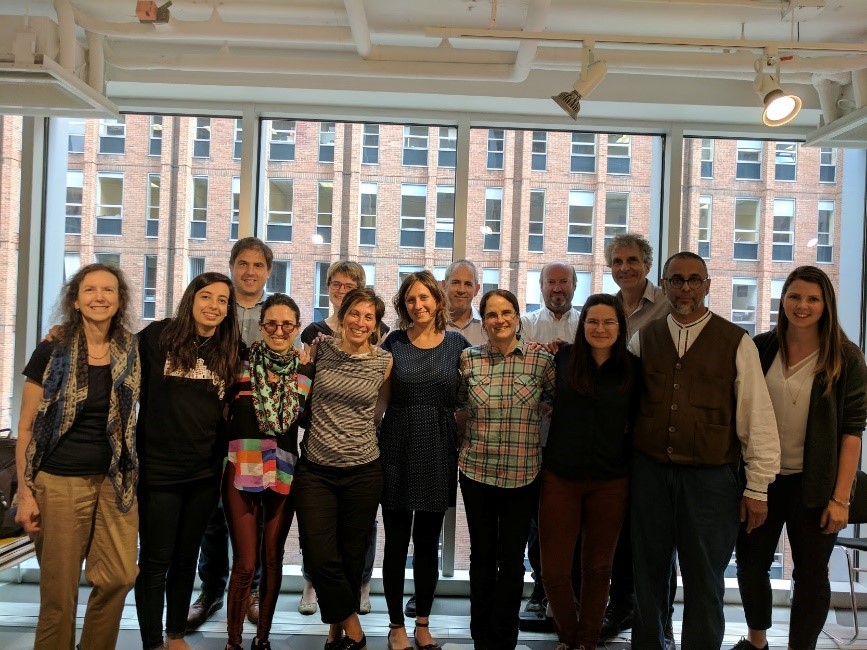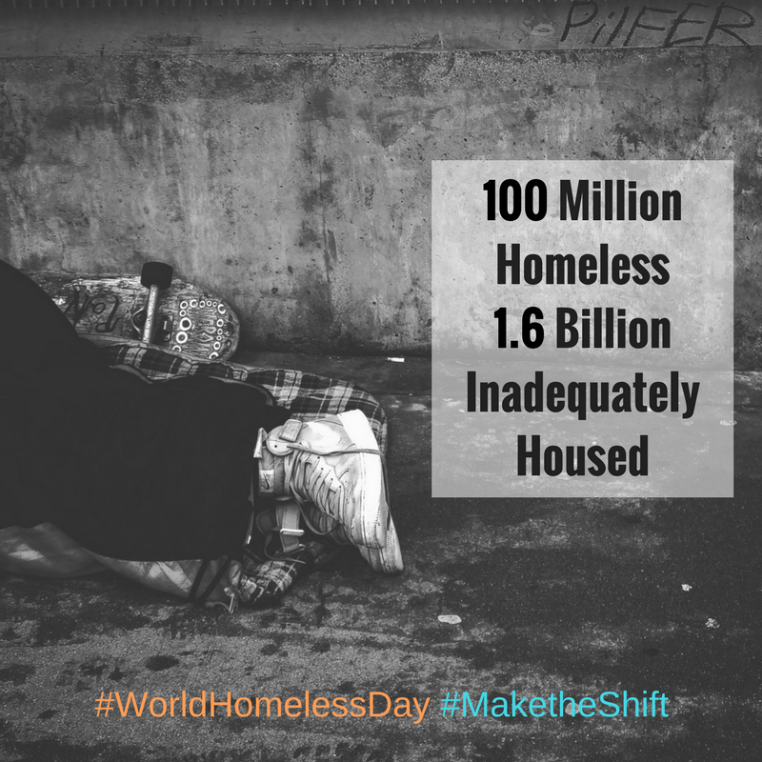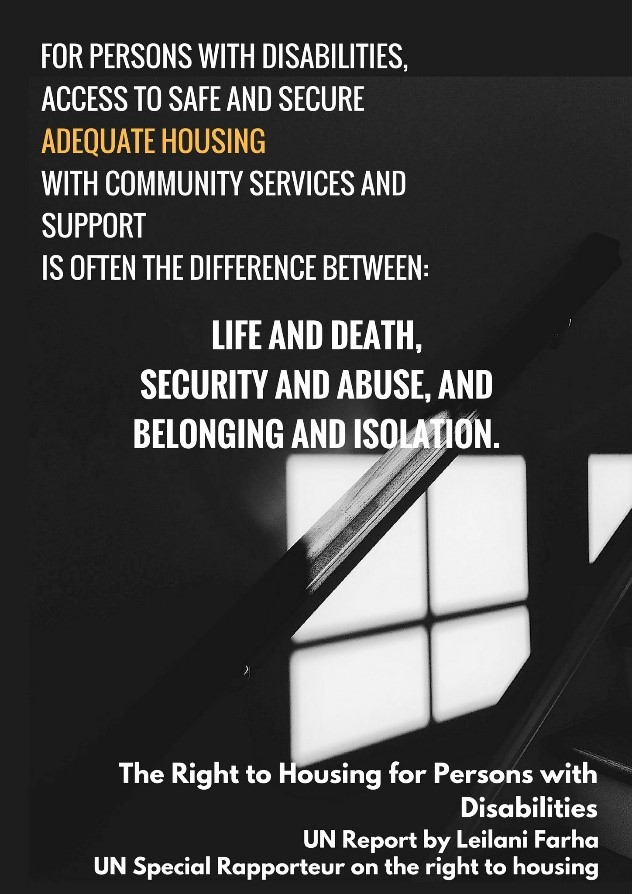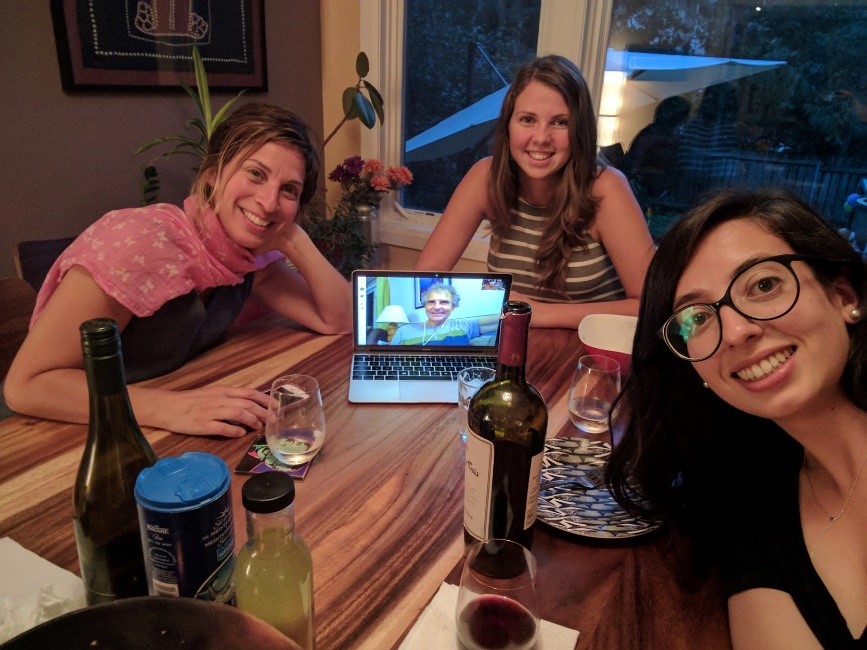Secondary menu
More Than Four Walls and a Roof: A Summer with the UN Special Rapporteur on the Right to Housing
Lauren Pinder (3L)
“Despite the fact that there are homeless people on the streets throughout the world, despite the fact that homelessness occurs in all economies: developed, emerging and developing, in times of prosperity and austerity, and despite the fact that homelessness is a significant economic and social cost for most societies, it has not been taken up as a critical human rights crisis that needs to be resolved.”
– Leilani Farha, UN Special Rapporteur on the Right to Housing

Introduction
One in three deaths around the world are linked to poverty and inadequate housing. The death rate of homeless persons is two-to-10-times higher than someone with a home. Globally, approximately 1.6-billion people are inadequately housed and100 million are homeless. The consequences of inadequate housing are stark: it has devastating impacts on health, well-being, and dignity, and it perpetuates marginalization and vulnerability. Yet, conversations regarding housing tend to focus on markets or finances; and ending homelessness is set as a lofty policy goal.
Housing is in a state of crisis - a human rights crisis. Housing is a human right, enumerated in numerous international human rights conventions and treaties, and recognized as such by state signatories around the world.
Thanks to an International Human Rights Program fellowship, I had the opportunity to spend this summer with Leilani Farha, the UN Special Rapporteur on the Right to Housing, trying to understand why the disconnect between housing and rights exists and what states must do to fulfill their human rights obligations.

The Thematic Report: Right to Housing for Persons with Disabilities
UN Special Rapporteurs are independent experts that conduct country-specific missions, respond to individuals’ complaints through official communications to respective state actors, and author two thematic reports per year, one presented to the UN General Assembly in New York, the other to the Human Rights Council in Geneva. The UN Special Rapporteur on the right to adequate housing is supported by a mandate team consisting of a human rights officer, a senior advisor, an executive assistant and a communications officer.
My primary responsibility this summer was to assist in the research and writing of the thematic report to the General Assembly on the right to adequate housing for persons with disabilities. The research required cross-referencing the right to housing as understood through the International Covenant on Economic, Social and Cultural Rights with the comprehensive framework of the Convention on the Rights of Persons with Disabilities (CRPD) to outline a unified and coherent international legal framework.
Together with the mandate’s senior advisor (and Ontario Human Rights Commissioner), Bruce Porter, I canvassed relevant jurisprudence, policies, and legislation from around the world to illustrate the legal and lived state of housing for persons with disabilities. Almost immediately, two things became clear to me.
First, due to the continued existence of institutionalization and inaccessible, unaffordable, and uninhabitable houses, the state of housing that many persons with disabilities live in is abhorrent.
Second, despite the fundamental importance of housing for persons with disabilities, the right to housing has received little attention. Human rights organizations and judicial bodies have narrowly addressed the right, if at all. Few countries have enacted laws or programs that seek to promote, protect and realize the right to housing for persons with disabilities. The issue has been largely neglected. While this deficit presented a challenge in finding relevant practices, it also demonstrated the necessity of this report.
The report delineated states’ obligations respecting the right to adequate housing for persons with disabilities, core principles courts should rely on to better adjudicate the right, and ultimately urged states to implement the disability rights paradigm to realize the right to housing in accordance with Agenda 2030.

The Shift
In addition to fulfilling the requisite duties of a Special Rapporteur, Leilani has initiated a global movement to reclaim the right to housing called the Shift. The Shift seeks to facilitate a paradigmatic change in the context of housing, to motivate states and individuals to refrain from further referring to housing as a commodity, an opportunity for investment, or a staple in a booming economy, and to instead refer to it as a human right.
In June, Leilani hosted the first global strategic planning meeting for the Shift. I had the surreal opportunity to prepare for and attend the meeting which included housing advocates from international organizations, national governments, national human rights institutions, the arts community, and the UN Office of the High Commissioner for Human Rights. I was, and continue to be, deeply inspired by the brilliant and committed advocates around the table.
Following the meeting, I continued to participate in developing the Shift by providing follow up notes to the participants, creating info-graphics, drafting core social media messaging, and writing the first draft of the concept note that each partner will use to seek funding. Trying to convey the passion and the ethos in the room in a short document was a daunting though ultimately rewarding task.
Strategic Advocacy – Communications
Communication is a crucial element of the right to housing mandate. Housing is everyone’s issue. To successfully transform how housing is considered, talked about, and addressed requires that people everywhere recognize it as such. Strong messaging, strategic communication, and an effective platform are necessary to make that happen.
Through the fellowship I came to realize that a strong communications strategy is an integral part of any successful advocacy effort. I learned about and contributed to the communications strategy of the mandate, including managing social media, curating media content in response to events, preparing for presentations at public events, translating important messages into info-graphics, and brainstorming and planning additional media opportunities such as podcasts and video blogs.
For example, a strong public response was required following the fire at Grenfell Tower which killed at least 80 people and left hundreds homeless and traumatized. In the wake of this tragedy, caused by government negligence and a complete disregard for the right to adequate housing, the importance of working on the issue became instantly and striking clear. Understanding housing as a human right would likely have prevented the tragedy, and it would have mitigated the re-traumatization and deplorable circumstances survivors faced afterwards. In addition to an official letter to the British government emphasizing their international human rights law obligations, the mandate team responded to the tragedy with a video outlining the human rights elements of the tragedy to ensure the public was aware of the victim’s rights in the circumstances. Social media platforms were used to monitor the response of the government, to document the situation of those affected, and to continue to inform the public of the human rights implications. The public inquiry considering the issue continues to this day.
Overall Reflections
I can say without hesitation that my fellowship with the Special Rapporteur was an invaluable learning experience that taught me about the international human rights framework, issues respecting the right to housing, and about the various facets of strategic rights advocacy. But a recap of my summer would not be complete without referring to unparalleled value of being part of this team specifically.
Being a part of the mandate team with Leilani, Bruce, and her executive assistant presented me with incredible mentorship and an unparalleled learning experience. This team is emblematic of the sense of community that the right to housing is meant to foster and protect. Not everyone has the chance to have line-by-line feedback on their work from an expert on socio-economic rights and human rights commissioner; or bounce ideas off the expert on the right to housing over coffee. From day one I felt like I was part of the team, was given the chance to jump in on any project that came up and was empowered the bring my ideas to the table, or often in our case the Skype conversation. It was an experience that I believe will always inform who I am as a lawyer, and that I recommend wholeheartedly to anyone considering an IHRP fellowship this upcoming summer.


